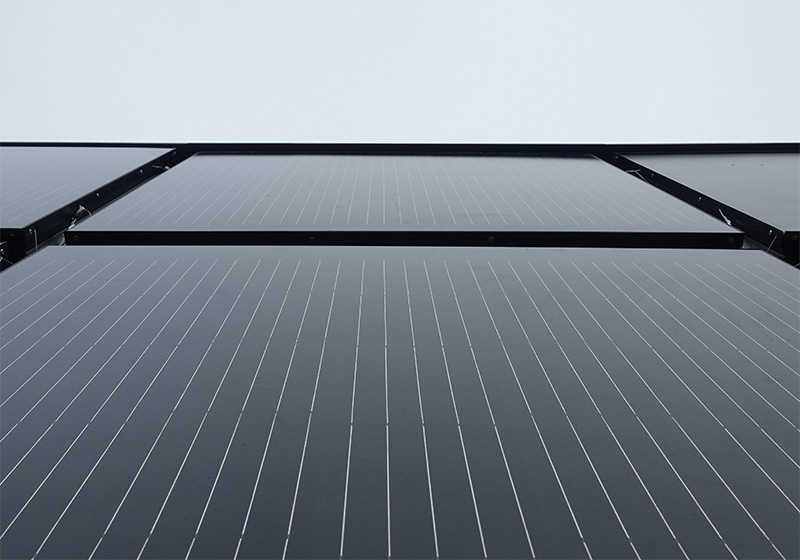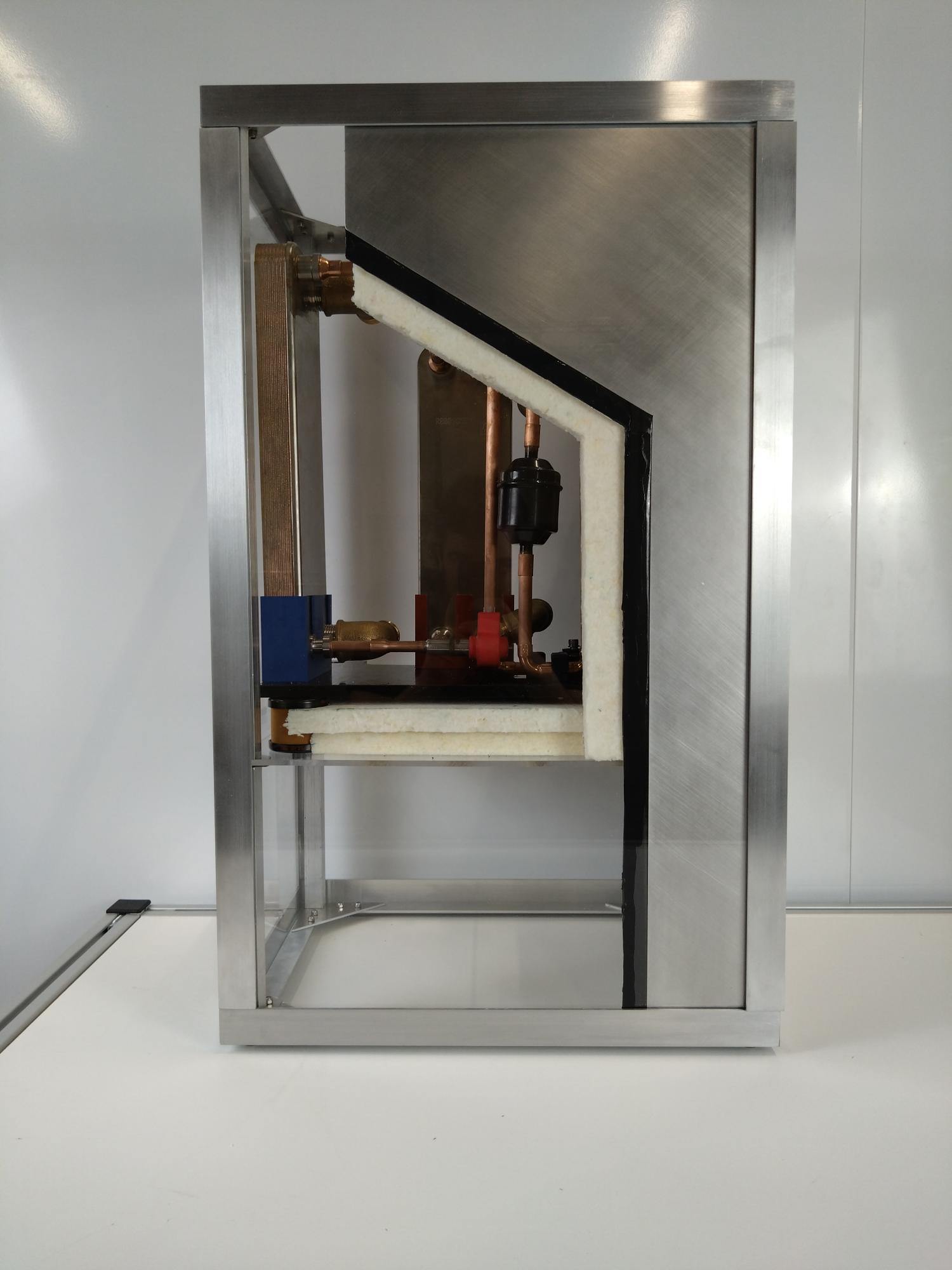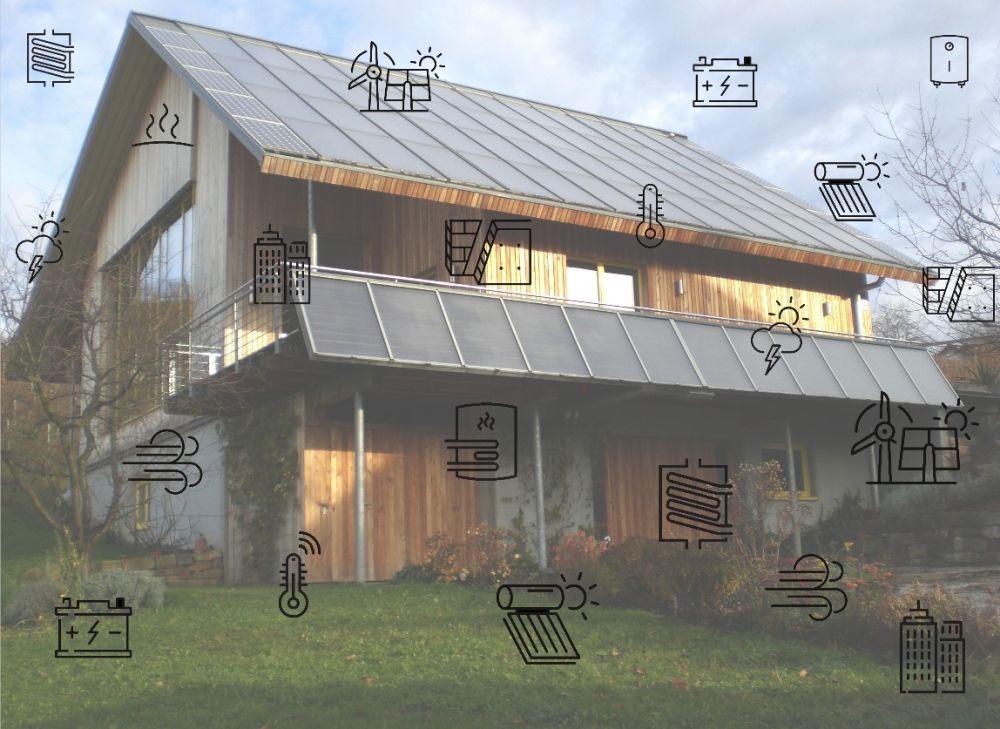Heat pumps are a climate-friendly solution for heating and covering hot water requirements in buildings, but are currently only used in around three percent of existing multi-family buildings. We are therefore conducting intensive research into solutions that can be standardized and multiplied on a broad scale, including in the German Federal Ministry for Economic Affairs and Climate Action (BMWK) funded project "LCR290".
To this end, an initial demonstrator has already been built and measured in the laboratory, which illustrates the replacement of fossil heating appliances in apartment buildings with a heat pump using the climate-friendly refrigerant propane (R290). A filling quantity of 150 g propane (R290) was used. The demonstrator presents a decentralized solution with a hydraulically tapped heat source (geothermal/solar thermal energy, district heating, air collector or low-temperature heat network).
"The low filling quantity of 150 g is an important value in order to minimize the potential danger when using the flammable refrigerant propane and thus enable the heat pump to be used in kitchens and washrooms, the typical places of use," explains project manager Dr. Katharina Morawietz.
The measured demonstrator achieved a heating output of 6 kW at a source temperature of 0 °C and a sink temperature of 55 °C and shows an efficiency of SCOP55 = 3.8 (Seasonal Coefficient of Performance) over the year, which is standard on the market for brine-to-water heat pumps. The SCOP is used to determine the seasonal coefficient of performance of a heat pump within different operating states, which are weighted according to climate zones.
At BAU, the scientists from Fraunhofer ISE will be presenting a further developed version of the demonstrator.
Research and development services for:
- Heat pump manufacturer
- Housing industry
Project: LCR290



